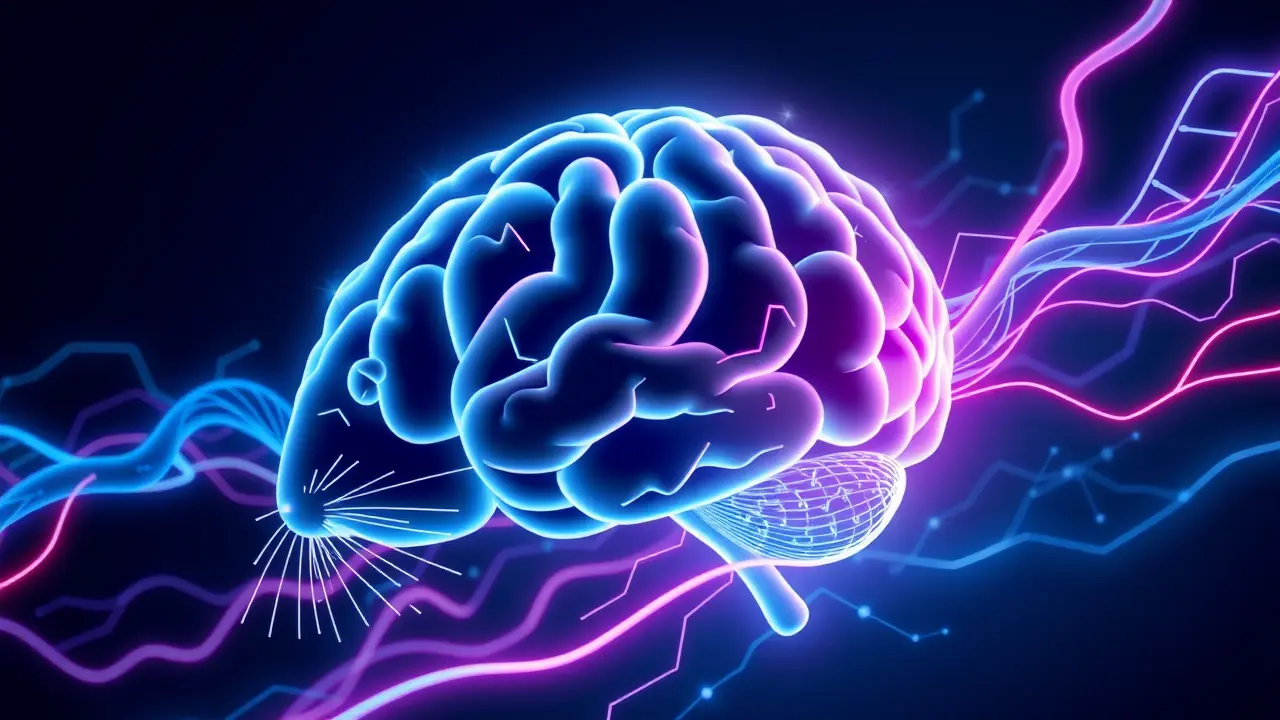Scientists discover how a high-fat keto diet could keep your brain young
The intricate dance between diet and neurodegeneration has taken a fascinating new turn, with a groundbreaking study from the University of Missouri homing in on a high-fat, low-carbohydrate ketogenic diet as a potential guardian of brain youth, particularly for those carrying the notorious APOE4 gene variant—a well-established genetic risk factor for late-onset Alzheimer's disease. This isn't merely about weight management or metabolic tweaking; we are witnessing the dawn of a new era in precision neurology, where the very fuel we provide our bodies is being weaponized against our own genetic vulnerabilities.The Mizzou research, conducted on murine models, revealed a striking sex-specific response: female mice with the APOE4 gene demonstrated the most profound benefits, exhibiting not only enhanced markers of brain health but also a significant rebalancing of their gut microbiome. This gut-brain axis connection is the critical frontier here, suggesting that the keto diet’s mechanism isn't a singular, blunt instrument but a sophisticated, multi-system modulator.By forcing the body into a state of ketosis—where it burns fat-derived ketones for energy instead of glucose—the diet appears to provide a cleaner, more efficient fuel source for neurons, potentially bypassing the glucose hypometabolism that is a hallmark of the aging brain and a precursor to Alzheimer's pathology. Think of it as upgrading your brain’s power grid from an aging, coal-fired plant prone to blackouts to a sleek, modern reactor running on a premium, high-octane alternative.This research builds upon a growing body of evidence that challenges the one-size-fits-all nutritional dogma, pushing us toward a future where your genetic report could directly inform your grocery list. For the estimated 25% of the population carrying a single copy of APOE4, and the 2-3% with two copies who face a drastically elevated risk, these findings are a beacon of proactive hope.It suggests that early dietary intervention, long before the first subtle signs of cognitive decline manifest, could be a powerful tool for building neurological resilience. The implications ripple out into the biotech and pharmaceutical landscapes, where drug development has often focused on clearing amyloid-beta plaques with limited success.What if the key isn't just removing the debris, but fundamentally changing the brain's internal environment to prevent its accumulation in the first place? This approach, often termed 'bio-hacking' in popular science, is now gaining serious traction in academic circles. It opens up parallel avenues for therapeutic development, including synthetic ketone esters that could mimic the diet's effects without its strict culinary demands, or next-generation probiotics designed to cultivate the specific gut flora that the keto diet seems to favor.Of course, the path from a controlled mouse study to a validated human protocol is fraught with complexity; human diets are notoriously difficult to standardize, and the long-term sustainability and potential side effects of a high-fat diet, particularly on cardiovascular health, must be rigorously investigated. Yet, the potential is undeniable.We are moving beyond treating disease to engineering wellness, from a reactive model of medicine to a predictive and personalized one. The work at Mizzou is a compelling piece of this puzzle, suggesting that the secret to preserving our most precious organ—the human brain—might not lie in a futuristic pill, but in a profound and deliberate recalibration of our ancestral eating patterns, tailored to our unique genetic blueprint.
TI
TiredOfCarbs12 hours ago
well my brain could definitely use an upgrade but idk if i can give up pasta for this, feels like a big ask tbh
0
CO
CoffeeDreamer12 hours ago
this is such a hopeful read for people with family history of alzheimers, you can really feel the care that went into this research
0
© 2025 Outpoll Service LTD. All rights reserved.
